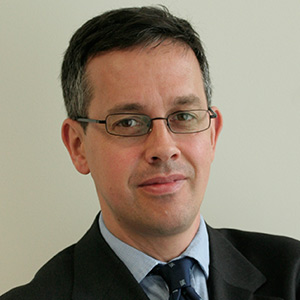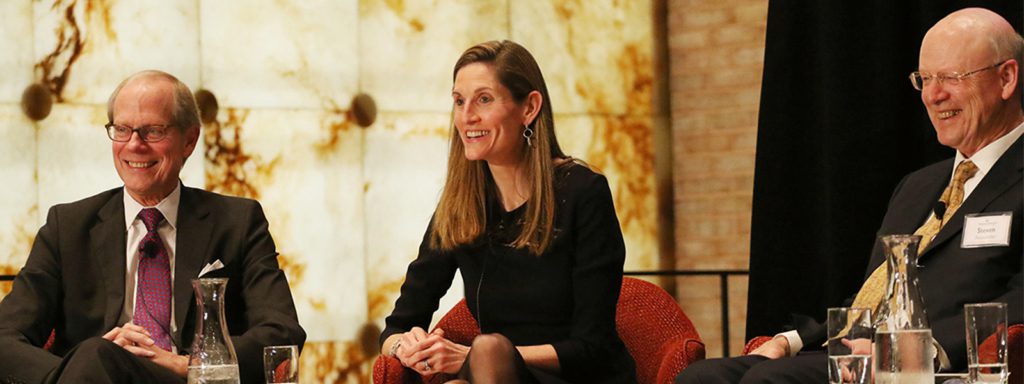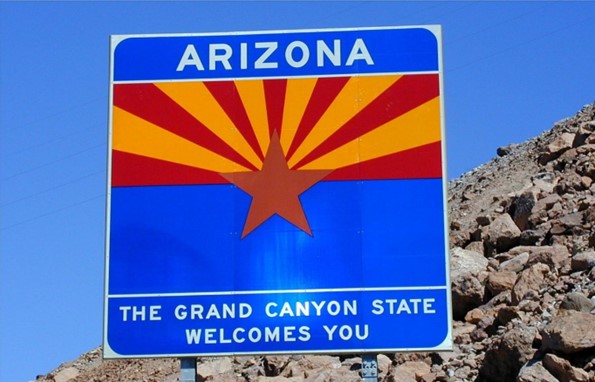By Susan Drake Swift
“Ok, boys, it’s time to get serious about the family business and that’s not oil, it’s philanthropy.” – John D. Rockefeller, Jr.
The mission of the 76-year-old Rockefeller Brothers Fund (RBF), still closely governed by members of the founding family, is to “advance social change for a more just, sustainable, and peaceful world.” In September 2014, RBF made headlines when it held a news conference at the United Nations to announce it was divesting all fossil fuels from its investment portfolio.
RBF President Stephen B. Heintz commented at the time: “John D. Rockefeller, the founder of Standard Oil, moved America out of whale oil and into petroleum. We are quite convinced that if he were alive today, as an astute businessman looking out to the future, he would be moving out of fossil fuels and investing in clean, renewable energy.”
The news conference created something of a sensation—but it was the result of a ten-year process to align the foundation’s investments with its mission. Speaking to an audience in Sydney in 2014, Heintz recalled the skepticism of the top business leaders on RBF’s investment committee. “But we said to them two things: “This is a foundation that has been a leader on climate change since the 1990s…Almost half of our grantmaking worldwide is about climate and energy.”
“In my mind, I compared our position prior to divestment to fighting lung cancer while still investing in tobacco,” says Heintz.
“Our investment management was very conventional in its thinking,” Heintz explains, seeking maximum financial returns while keeping the endowment separate from RBF’s philanthropic activities. He sought to “change the mindset with a different way of thinking about the total asset base that we want to try to deploy as effectively as possible.”
Heintz and his colleagues pursued a deliberate, step-by-step approach. The first step was in 2005 to develop a strategy and detailed guidelines for proxy voting, a kind of economic clout the Fund had not heretofore put to use. “That gave us a framework for our larger conversation on aligning our programmatic work with our investments,” said Heintz.
Then, in 2010, RBF secured authorization from its board to start making investments in “business opportunities to advance our clean energy development and sustainable development, using a 10 percent set aside of our endowment.
That was slow going at first for two reasons. One, there was not that much investment product that met the rigorous requirements in terms of financial returns and social and environmental impact.” Second, success ultimately depended upon switching to a new outsourced chief investment officer and team with which RBF is now working effectively.
The moral argument had been made. The next step was the sensitive and complex conversation with regard to the economic argument, supported by research and modelling by one of RBF’s grantees, the Carbon Tracker Initiative.
Carbon Tracker is a London-based, not-for-profit think-tank composed of legal, energy, and financial experts, many having worked with top firms in the City of London financial district. The organization’s thorough-going research and analysis brought it, and clients like RBF, to this critical conclusion: 60 to 80 percent of all known fossil fuel reserves held on the books of fossil fuel companies must remain unburned if the worst excesses of climate change are to be avoided.

Mark Campanale, founder and executive director, Carbon Tracker, a grantee of RBF
Says founder and executive director Mark Campanale: “Our analysis…just before Paris found that fossil fuel companies risk wasting up to $2.2 trillion of investments in the next decade because they are uneconomic due to a host of factors including policies to limit climate change to two degrees. The growth of renewables, technological advances, more rapid take up of electric vehicles and slow down of coal consumption in China are other factors pressuring fossil fuel growth.”
That means, he says: “No new coal mines will be needed in the timeframe, oil demand will peak around 2020, gas growth will disappoint industry expectations while oil majors and coal companies are still pursuing business as usual strategies.”
In time the RBF Board was persuaded by both arguments, moral and economic, agreeing in 2014 to divest from fossil fuels entirely. Of a total of 6 ½ percent of its portfolio in fossil fuels, Rockefeller Brothers Fund has succeeded in divesting about 3 1/2 percent and is now nearly completely divested from coal and tar sands oil, the most carbon intensive of its financial holdings. Heintz estimates another year or two remains before the job is complete.
Fifteen years to divest fossil fuels might seem an unusually lengthy campaign but Heintz is accustomed to working steadily over time to achieve progress and create important changes. He did so as founding president of Dēmos, chief operating officer of the EastWest Institute, and the top official at the Connecticut welfare department, where he helped to draft and pass the first major reform of the nation’s welfare system. He was also Independent Sector’s chairman during most of the highly collaborative process of developing IS’ current strategic vision – which prioritizes attention to disruption caused by inequality and climate change.
Looking ahead, is he optimistic or pessimistic about climate change? “I am more optimistic than I was a year ago,” he says,” noting that the context for climate change work is looking up since 188 world leaders signed the Paris climate accord in May. “Paris was a turning point where the global community came together in a codified written agreement with pledges – not simply a multilateral agreement but a polylateral agreement which called upon not just governments but the private sector, investors, civil society, non-governmental organizations, and philanthropy and citizens to do their part.”
He refers to the progress made between the Copenhagen conference in 2009 and Paris 2016. “Two key players made pledges in Paris – the United States of America and the People’s Republic of China. Without both of them we do not have a prayer of solving the climate problem.”



